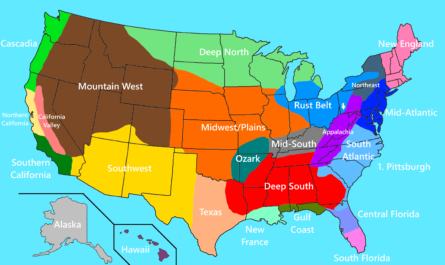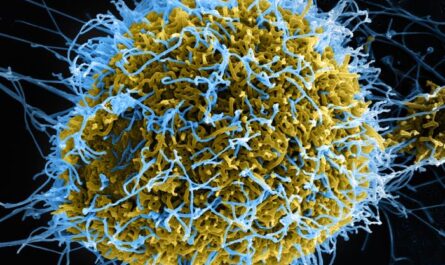In a breakthrough for the field of vaccine design, researchers from the Pritzker School of Molecular Engineering at The University of Chicago have utilized machine learning algorithms to identify potent immunomodulators. These small molecules can enhance immune pathways, resulting in more effective vaccines and stronger immunotherapies for the treatment of cancer. The findings, published in the journal Chemical Science, highlight the potential of artificial intelligence (AI) in revolutionizing the discovery of novel immunomodulatory agents.
Immunomodulators play a crucial role in stimulating the desired immune response in the body. However, due to the vast number of drug-like small molecules present in the chemical space (estimated to be 1060, surpassing the number of stars in the visible universe), identifying the right molecules for immunomodulation has proven to be challenging. By leveraging the power of AI, the research team, led by Prof. Aaron Esser-Kahn and Prof. Andrew Ferguson, successfully identified a small molecule that demonstrated superior performance compared to existing immunomodulators on the market.
The team initially conducted a high-throughput screening of 40,000 combinations of molecules, evaluating their impact on innate immune pathways, particularly the NF-κB pathway and the IRF pathway. Subsequently, the top candidates were tested and found to enhance antibody response and reduce inflammation when combined with adjuvants, which enhance the immune response in vaccines.
To expand their search for potential immunomodulators, the researchers utilized the results obtained from the initial screening and combined them with a library of around 140,000 commercially available small molecules. Graduate student Yifeng (Oliver) Tang employed active learning, a machine learning technique that efficiently navigates the screening process through molecular space by blending exploration and exploitation. This iterative process allowed the team to identify high-performing molecules that had not been previously discovered, even after sampling only about 2% of the library.
The newly identified small molecules showed remarkable performance in modulating immune pathways. They significantly increased NF-κB activity by 110%, elevated IRF activity by 83%, and suppressed NF-κB activity by 128%. One molecule exhibited a three-fold enhancement in IFN-β production when combined with a STING (stimulator of interferon genes) agonist, which can potentially strengthen immune responses within tumors and serve as a promising treatment for cancer.
Moreover, the researchers identified a group of generalist immunomodulators capable of modifying pathways when co-delivered with agonists. These molecules have the potential to be used more broadly in vaccines, making them easier to bring to market. By identifying common chemical features that promote the desired behaviors exhibited by these molecules, the team aims to focus on similar compounds or engineer new molecules with targeted characteristics.
The research team plans to continue this innovative process and hopes to collaborate with other experts in the field to further enhance their search for immunomodulators. They have set their sights on screening molecules for specific immune activities, such as activating certain T-cells, and exploring combinations of molecules to gain better control over immune responses.
Ultimately, the goal of this research is to identify molecules that can effectively treat diseases by harnessing the power of the immune system. The use of machine learning algorithms has paved the way for a more efficient and systematic approach to the discovery of immunomodulators, offering new hope for the development of advanced vaccines and immunotherapies.
*Note:
1. Source: Coherent Market Insights, Public sources, Desk research
2. We have leveraged AI tools to mine information and compile it




